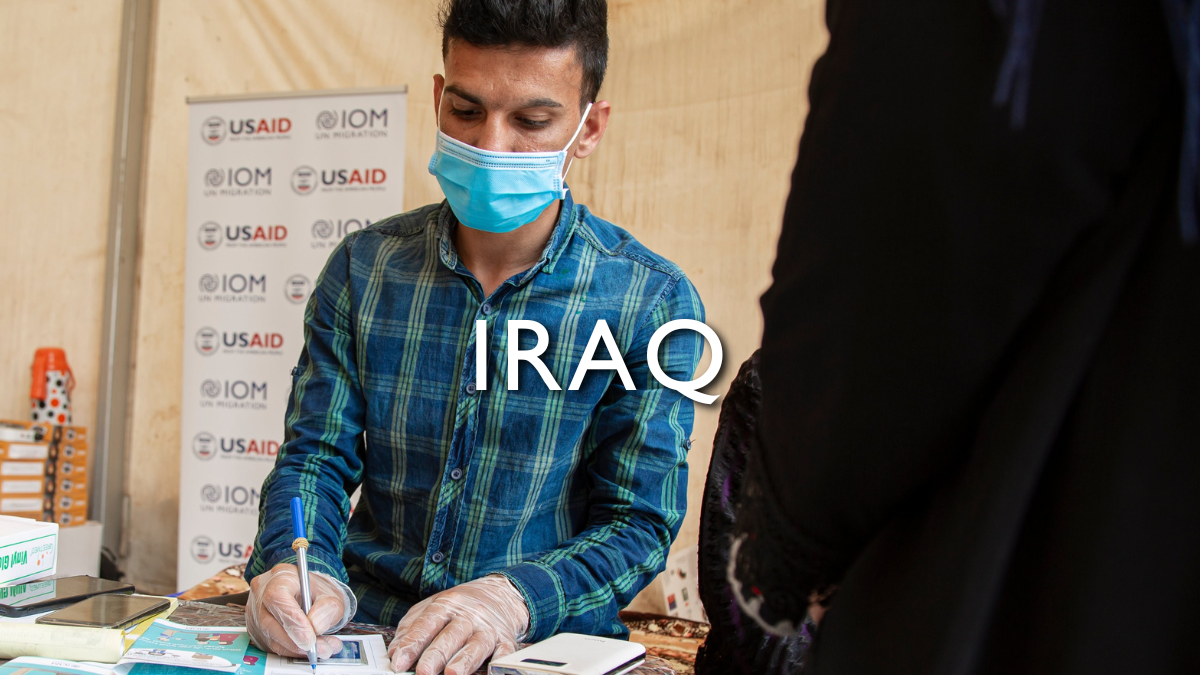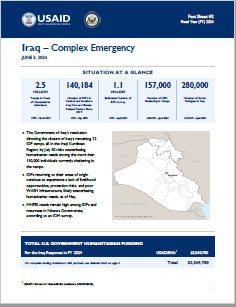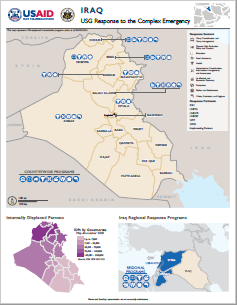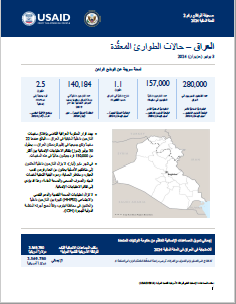
In January 2014, Islamic State of Iraq and Syria forces began seizing control of parts of northern and central Iraq, prompting mass displacement as civilians fled to areas of relative safety, including the Iraqi Kurdistan Region, to escape violence. While five million former internally displaced persons (IDPs) had returned to their places of origin by April 2024, more than 1.1 million people remain internally displaced across Iraq. Many of the most vulnerable IDPs and returned IDPs face severe living conditions, limited access to basic services, and diminished livelihood opportunities. In addition, climatic shocks, economic challenges, and ongoing insecurity continue to heighten the vulnerabilities of Iraq’s returning populations, displaced populations, and the communities that host them.
USAID remains committed to supporting humanitarian partners in reaching conflict-affected populations with protection support, essential water, sanitation, and hygiene services, and primary health care services. USAID also supports partners providing critical shelter services for displaced Iraqis and delivering emergency food assistance in the form of cash transfers to populations in need. USAID provided approximately $3.6 million in humanitarian assistance in Fiscal Year 2024 alone to address the needs of vulnerable populations residing in Iraq.



